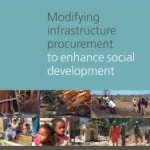Research by the International Food Policy Research Institute (IFPRI) in a variety of rural financial systems suggests that local approaches work best and that traditional banking practices don’t work for the rural poor because there is no leeway in providing financial services to the poor that applies in every location.
Local practice still works best while technical support and training for the poor are pre-requisites for success. “Appropriate policies and good governance are critical for creating an environment in which financial services can make a difference for the poor,” according to IFPRI.
People must be educated and healthy enough to use credit in productive activities per IFPRI’s recent report.
Efficient, functioning markets are also critical for small scale farmers and entrepreneurs to obtain the inputs and outputs they need to produce and get their products to market, says Manfred Zeller, a research fellow at IFPRI.
Investments in a social safety net and provision of infrastructures in roads, electricity and communications especially in rural areas are necessary to enhance credit impact in alleviating poverty.
Requiring borrowers to put up physical collateral and fill out substantial amounts of paperwork ignores the realities of the rural poor.
Poor people cannot afford to risk their limited landholdings or livestock and illiteracy makes bureaucratic paperwork, a daunting obstacle.
Paperwork should be minimal and social collateral such as peer monitoring instead must be used to determine the credit worthiness of the poorest people.
The obstacle the poor face, is access to loans. More credits should be granted to agriculture. Farmers with access to credit use improved farming technologies.
Most agricultural credit schemes failed in the past because traditional banking approaches were used. That left small landholders and tenant farmers without credit to finance their farming operations.
Member based community organized financial institutions such as credit cooperative should be controlled by the members and encouraged to do different approaches in providing financial services with various savings strategies.
Regulations to protect savings and to minimize loan defaults are necessary, though they should be flexible enough and allow local organizations to set their own rules.
These guidelines are based on research by the IFPRI on rural finance programs for the poor in 11 African and Asian countries.
